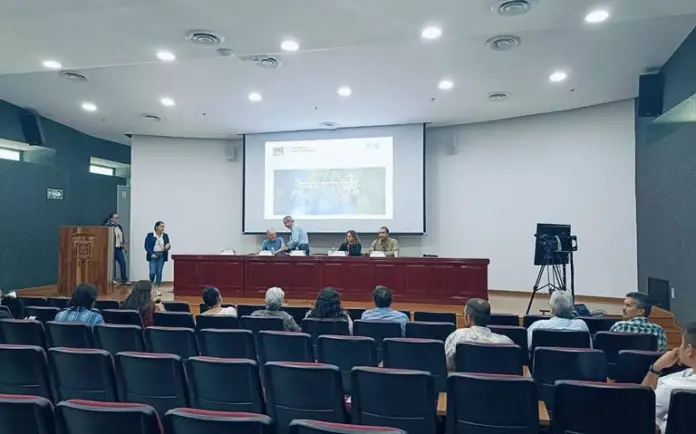
The international institute IHE DELFT warns that Western Mexico faces critical issues with water, mainly areas such as: Guadalajara, Valley of Mexico, Baja California and the Lerma-Chapala Basin with similar features.
In Guadalajara, in addition to the contamination of the Santiago River, it faces the overexploitation of aquifers, a distribution network infrastructure with high levels of obsolescence, explained the researcher of the IHE DELFT, Jonathan Godínez Madrigal in the conference entitled “Red flags in sociotechnical water systems in Mexico: an inter and transdisciplinary research agenda” at the University Center for Social Sciences and Humanities.
“Guadalajara has the contamination of the Santiago River, which is a critical problem, the overexploitation of aquifers, water supply based on external water sources with fragile agreements and infrastructure, now it is being debated, for example, what happens if León is going to take water from the Solís Dam, then if that happens it will directly impact Chapala, if it impacts Chapala it impacts us in Guadalajara. So what had been solved with the Zapotillo dam will be completely broken if Chapala enters into crisis, so we have fragile agreements.”
The international researcher gave a general overview of what is happening in the critical areas of the West of the country on the Lerma Basin. Chapala explained that it faces overexploitation of aquifers, contamination of rivers, lakes and competition for water between different uses such as: agriculture, industry and urban consumption.
The excessive decrease of water in Lake Chapala due to extraction and contamination: “Guadalajara depends 60 percent of its supply on the lake, the high vulnerability to climate change.”
Within the framework of a 14-day global research tour on water uses and governance in western Mexico, researchers from the University of Guadalajara (UdeG), CIESAS, ITESO and the international institute IHE DELFT will tour El Zapotillo, Lake Chapala, Temacapulín, El Salto, Juanacatlán and Poncitlán to review the sources of water and how the vital liquid is being prevented in quantity and quality for medium-sized cities in Jalisco and the possibilities for access to clean water using different mechanisms.
With the data obtained, a comprehensive report, a proposal and a research project with specific actions on water in the areas currently considered critical in the western part of the country will be issued.
Source: eloccidental






